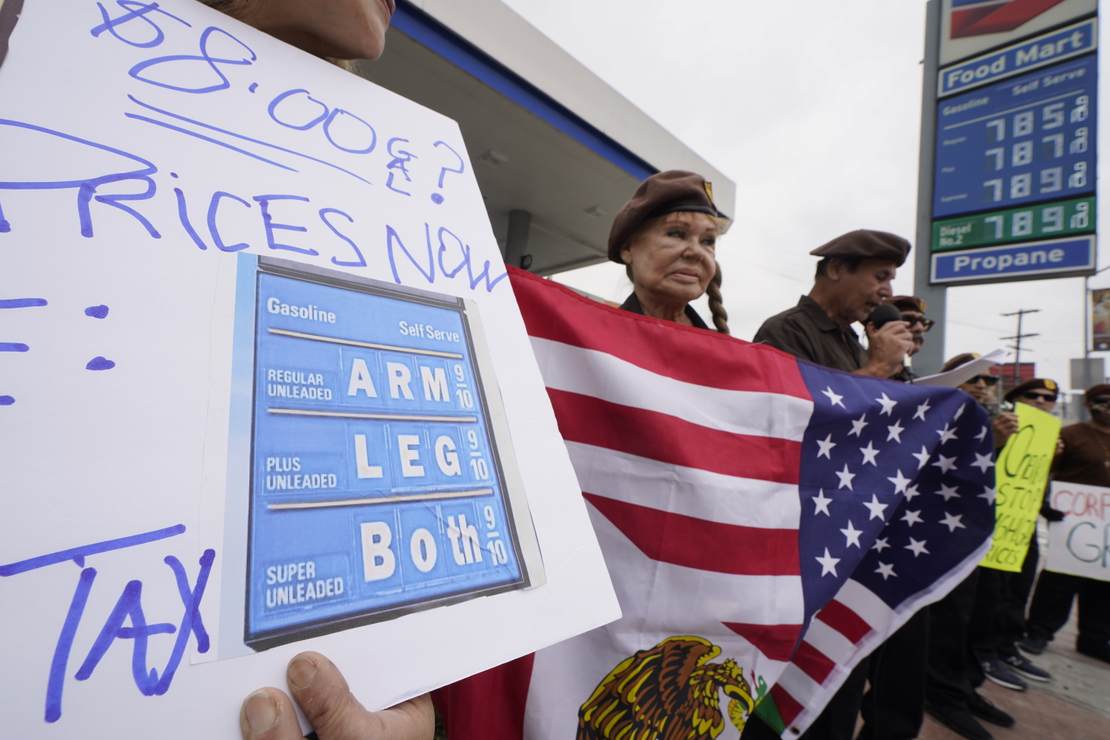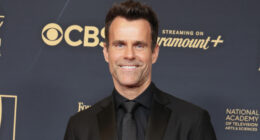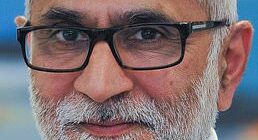
And, in the it-can’t-get-any-worse department, it just got worse. Retail sales fell a seasonally adjusted 0.3 percent in May from the previous month, the Commerce Department said Wednesday, the same day the Federal Reserve raised its interest rate by .75 of a percentage point, its biggest rise since 1994.
The retail sales drop was the first decline in month-over-month retail spending this year, according to the Wall Street Journal. Meanwhile, the Federal Reserve’s interest rate move is intended to slow raging inflation, which is running at a staggering 40-year high. You did that, Joe!
But don’t worry, we’ve still got the stock market. Oh wait, that’s off 16 percent for the year.
RedState’s Nick Arama reported Tuesday how the Biden Administration thinks they have it all under control:
Karine Jean-Pierre says Biden’s $2 trillion stimulus “has put us in a place where we can actually, uh, put us in a place where the American people feel, can, can — can actually — we can take on inflation.”
Then she says we’re in “a good historic economic place.” pic.twitter.com/37rL39LjwD
— RNC Research (@RNCResearch) June 14, 2022
The Fed’s rate hike will increase the benchmark federal-funds rate to a range between 1.5 percent and 1.75 percent. Said Fed Chairman Jerome Powell at a news conference: “We’re not trying to induce a recession now. Let’s be clear about that.” Well, that’s reassuring.
From the Journal:
But he said it was becoming more difficult to achieve what is known as a soft landing, in which the economy slows enough to bring down inflation while avoiding a recession. That represented an implicit concession that the risks of a downturn could rise as the economy digests tighter monetary policy.
READ RELATED: Nate Silver's take on the political reality post-Roe won't go over well with Dems
“It is not going to be easy,” Mr. Powell said. “There’s a much bigger chance now that it’ll depend on factors that we don’t control. Fluctuations and spikes in commodity prices could wind up taking that option out of our hands.”
Hoo boy. That sure sounds like a recession is a distinct possibility.
Stock markets rose slightly after the rate announcement, with investors hopeful that the move will put a dent in inflation. However, such a large increase will make consumers’ lives more difficult, as credit card interest rates will rise, mortgage rates will jump, adjustable-rate loan payments will increase, and car loans will be more expensive.
The retail sales drop, meanwhile, indicates a slowing of the economy as consumers hold back on purchases because inflation has eaten into their budgets. From Bloomberg:
The figures suggest that Americans’ demand for merchandise is softening, which could reflect the impact of the fastest inflation in 40 years or greater preference to spend on services like travel and entertainment. As price pressures become more entrenched in the economy, spending will likely ebb either due to higher prices, higher interest rates, or both.
My opinion: Gas prices are so high that people are in shock, and by the time they’ve finished filling up that tank, they’re in no mood to drop by Banana Republic to pick up a couple of shirts. People are scared, and they’re holding on to their money whenever possible.
One of the biggest drops was in car sales, which fell 3.5 percent in May. Again, hardly a surprise—I don’t know about you, but as long as my car is functioning, I sure don’t feel like replacing it now given all this uncertainty.
While some may see the Federal Reserve’s decision to raise interest rates as a good thing that will hopefully tame inflation, it still will certainly be yet another shock to the consumer. Anybody who needs a loan, carries or credit card balance, or has an adjustable-rate loan is about to be in for a nasty surprise. Meanwhile, the drop in retail sales is a harbinger of things to come—namely, that consumers are keeping their wallets in their pockets.
The Biden administration can trot out as many spokespeople as they want to tell us how rosy this economy is, but the numbers don’t lie.
Source:






